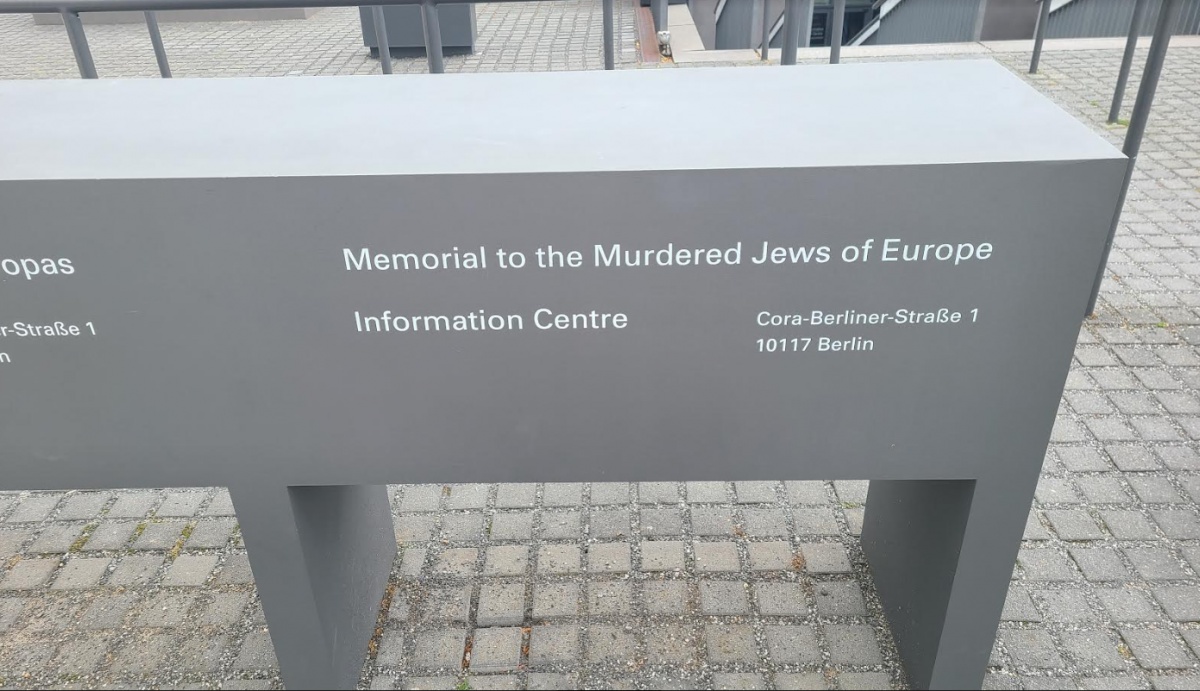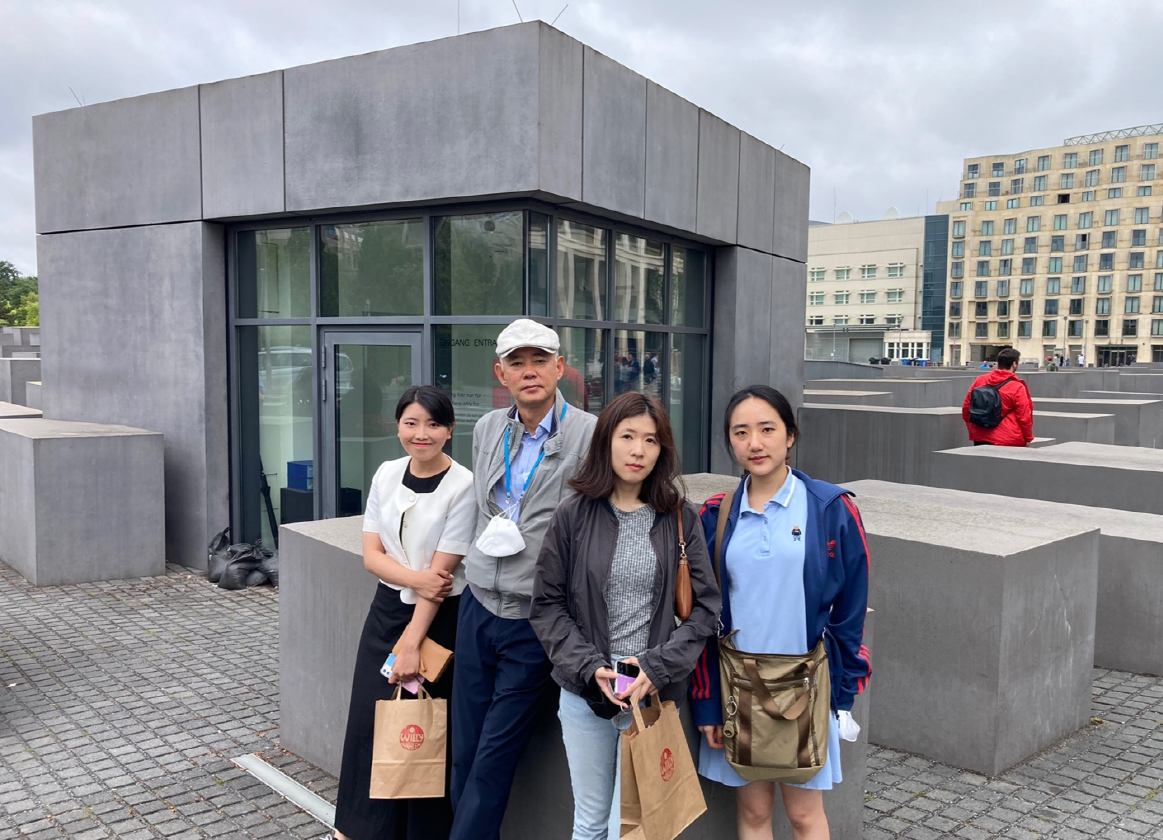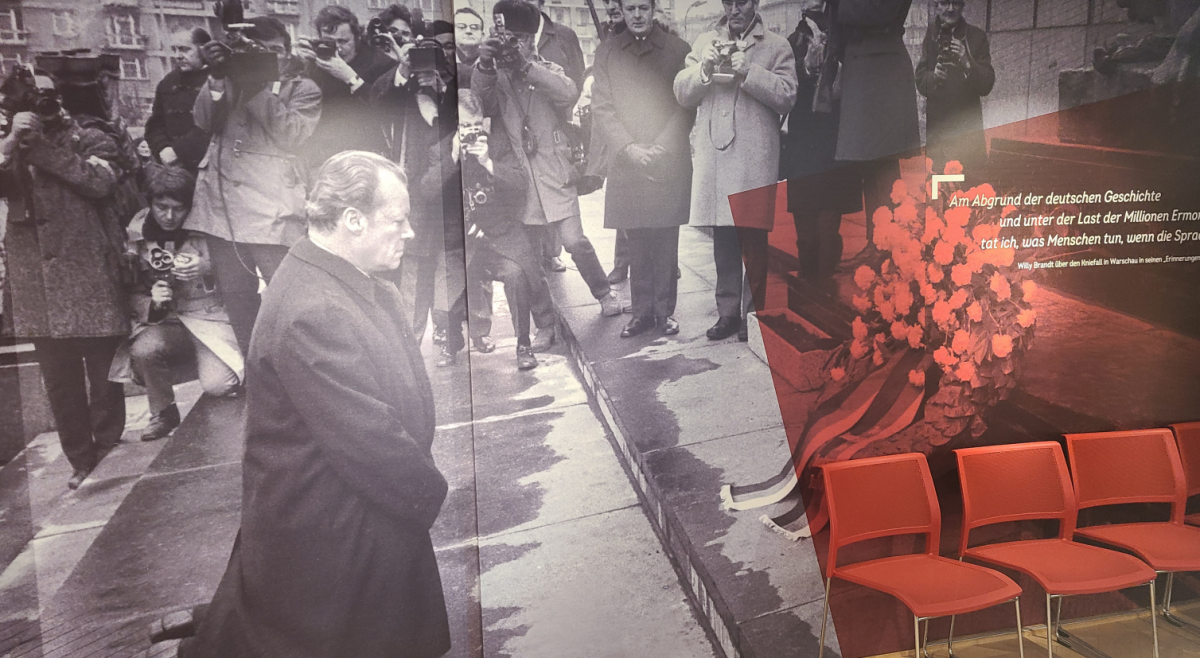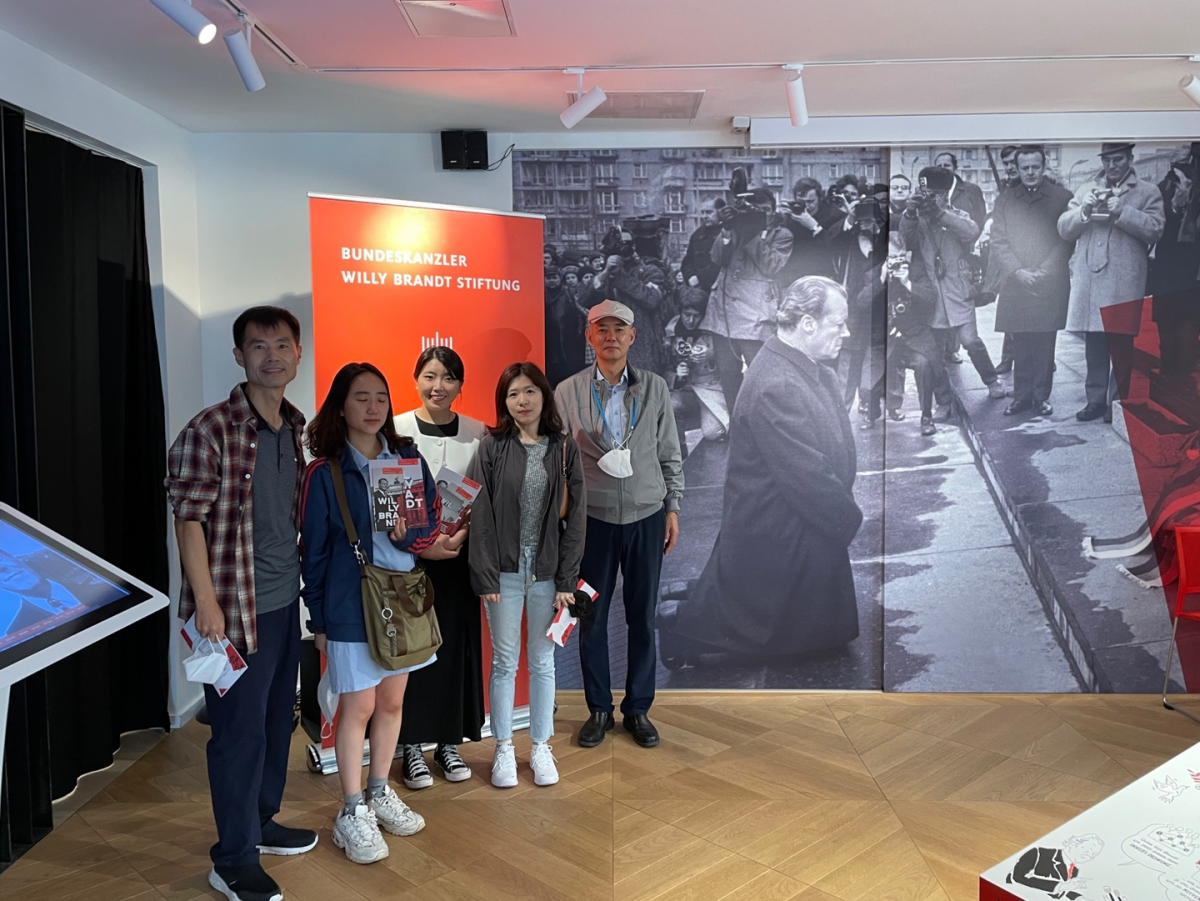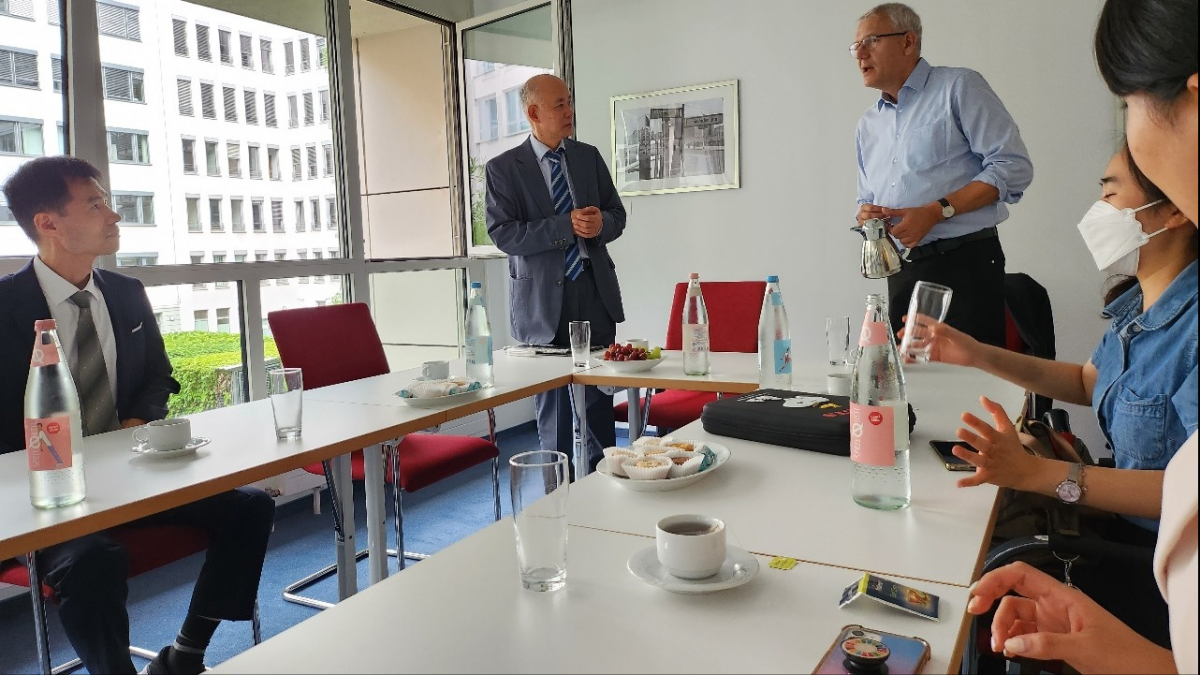[Field Trip] Reconciliation Diplomacy of European Countries and Implications for the East Asia & Research on Eurozone Financial Crisis (August 25 - September 7, 2022)
페이지 정보

본문
Professor Sung-Hoon Park, Jean Monnet Chair and a director of KU-EU Centre and Professor Seunghwan Yoon, a research Professor at KU Jean Monnet EU Centre went on a field trip to lead a workshop with graduate students and research for Jean Monnet Chair Project.
Main theme of the international workshop was to learn about European Reconciliation and its implications for the East Asia. Three graduate students, who is on MA program participated along the field trip.
As a part of field trip, Professor Park and Professor Yoon and three undergraduate students visited various monuments and sites of reconciliation. The sites included Memorial to the Murdered Jews of Europe (Denkmal fuer die ermordeten Juden Europas), Wily Brandt Forum, and the memorial to Pollish Soldiers and German Anti-Fascists (Denkmal des polnischen Soldaten und deutschen Antifaschisten)
Holocaust Memorial, a site built not to forget about pain and victims of the war crimes, is located around Brandenburg Tor, the major tour site and the center of the capital. The memorial is not limited to the Jews living in Berlin but includes Jews in Europe, which provides more universal value to the memorial. Visiting the vast site with more than 2700 steles, students reflected on the war crime and the pains of the victim. They had a time to reflect on the fate of European Jews in 20th Century outside the textbook.
Another major visit was made to Willy Brandt Forum, where the researchers could learn in depth about the Eastern Politics of Germany at the time and how a major politician played an important role in making peace with other nations. As both mayor and prime minister, his political and personal life is worth looking at, regardless of political inclination. The infamous "Kniefall" photo represents the reconciliating had stretched to Poland, which took time but eventually had been accepted. Germany has since been active in reconciliating with the rest of the Europe. Although the efforts with Western Europe, especially France is widely known to the public and mediated by the United States, reconciliation with Eastern Europe who had suffered more casualties than Western counterparts are less well known. The in-depth analysis and recounts on the memories, and the public acceptance was fascinating to know. The guide explained how the public apology was received. It was welcomed later, but at the time, both public of Germany and Polish people were skeptical or even enraged at such a show. Still, the researchers could learn about the dedication the politician had shown to normalize foreign relations.
Another important but less well-known site is the Memorial to Polish Soldiers and German Anti-Fascists (Denkmal des polnischen Soldaten und deutschen Antifaschisten). It was built before the German unification in 1972 by GDR. It is one of the few memorial places for Polish soldiers who were sacrificed during World War II. Later, the memorial broadened its scope to the monument to the German Resistance itself. The purpose was to emphasize that the struggle against fascism was a humanitarian values and is fought by joint forces of Poland and Germany. It shows the cooperation between two nations even during the war, with the sign of "For Your Freedom and Ours," indicating that freedom is for all people. Another significance of the memorial is that it does not reduce Polish to mere victims but active fighters that resisted against the crime that tried to take away the fundamental human right, freedom.
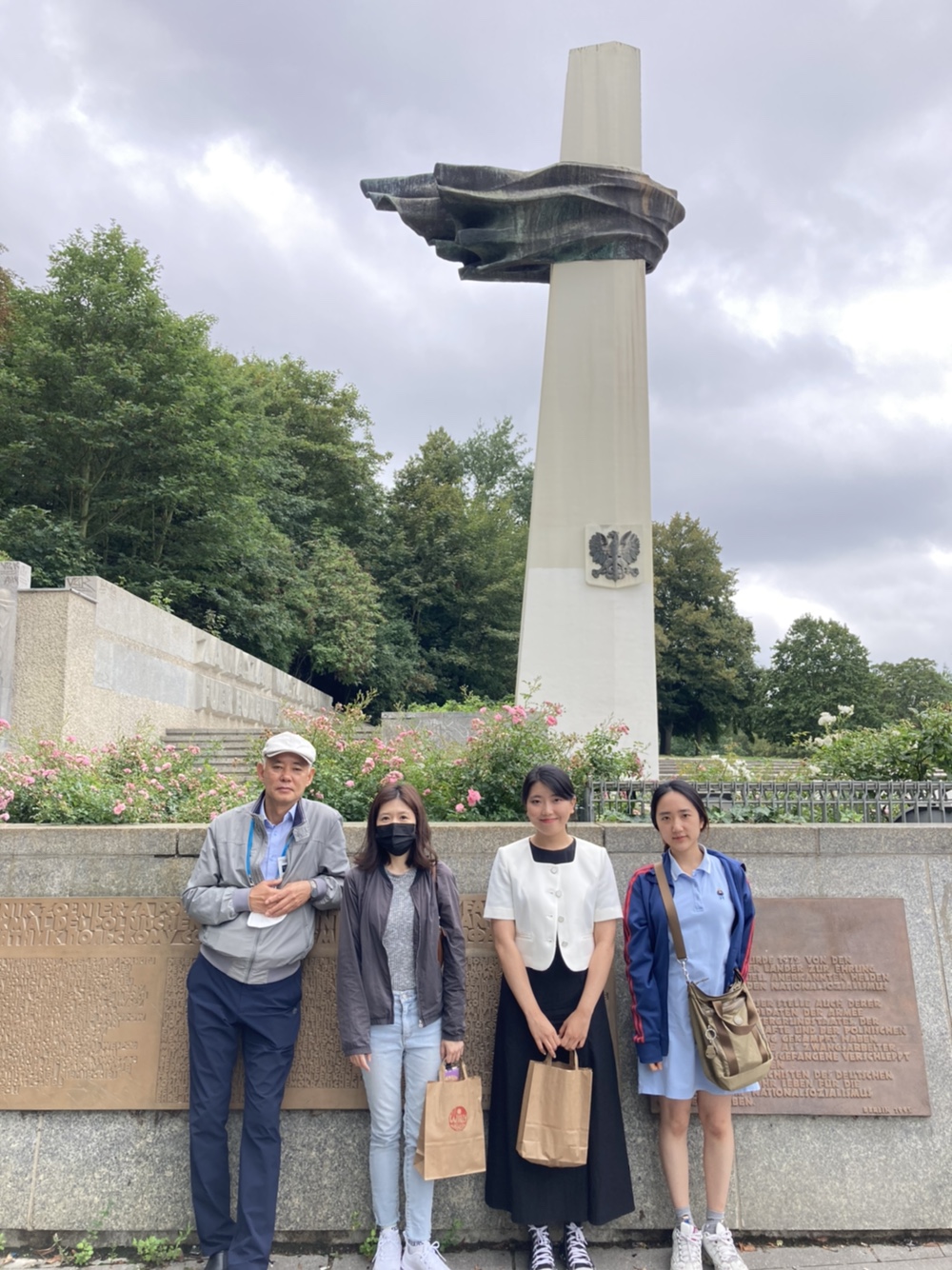
The workshop/seminar went on length. The Berlin Institute for Cold War (Berliner Kolleg der Kalter Krieg) warmly welcomed professors and graduate students from abroad. The objective of the seminar was to learn about how Europe reconciled after World War II and what implications it could give to East Asia, especially in bilateral relations between Korea and Japan.
Professor. Dr. Andreas Wirsching from University of Munich, Dr. Christian Methfessel from Kolleg der Kalter Krieg, Professor. Dr. Helene Miard-Delacroix from Universite Paris-Sorbonne were main speakers during the long-hour sessions. Professor. Dr. Hermann Wentker from Institut fuer Zeitgeschichte Muenchen-Berlin was also invited to share his insights with graduate students and Doctors to debate about the procedure and implications of reconciliation. The lecturers each gave a lecture about reconciliation with Poland, reconciliation with France, and in Balkan region (Yugoslavia). Each lecture was followed up by lively discussions and Q&A. Later that day, French Diplomacy had invited and gave a chance to listen from France's perspective on the issue and how the memory of reconciliation still affects diplomacy of 21st Century in the face of multiple crises thereafter.
After the workshop, Professor Yoon ended his schedule while Professor Park continued the research on different subject, "Eurozone's financial crisis management." Although the trip was planned to visit European Central Bank (ECB) and utilize the documents of the institute, the visitation was strictly limited due to COVID restriction. Due to the unfortunate denial of access to the building, Professor Park had independent research in Frankfurt.
- 다음글[Field Trip] 2022 ROK-Central Europe Future Cooperation Conference and Special Lecture (May 26-June 4, 2022) 22.07.19
댓글목록
등록된 댓글이 없습니다.









